#the damascus project (story)
Text
That awkward moment where you're writing about the good guys but. like. you're about eighty percent certain they're committing war crimes here
#human experimentation?? seems like a problem??#BUT THEY'RE TRYING TO HELP#but they also kidnapped this guy#HOW DID I END UP WRITING MORALLY GRAY SCIENTISTS??? THIS IS NOT MY WRITING NICHE AT ALL#yet here we are#if you'll excuse me i'm going to go google the geneva conventions#the damascus project (story)
100 notes
·
View notes
Note
I saw your post on that nuclear war book; do u have any recommendations for actually good ones? (I’m interested in both fiction and non-fiction)
I have several!
None of them are quite in the same vein, they are concerned with actual history rather than speculation and chomping at the bit to portray North Korea as The Joker.
Command and Control: Nuclear Weapons, the Damascus Accident, and the Illusion of Safety by Eric Schlosser walks the reader through the history of both US nuclear weapons development, and nuclear warfighting 'strategy' (such that it is), as well as numerous accidents and incidents of weapons mishandling, misfiring, and going missing.
Raven Rock: The Story of the US Government's Secret Plan to Save Itself - While the Rest of Us Die by Garret M. Graff is probably the closest thing to a "real" version of Jacobsen's book, it talks about US "continuity of government" plans, the bunkers, communication systems, and operational plans to "fight" a nuclear war after the infrastructure of the US has been obliterated. Spoiler alert: It doesn't work that well and is largely a bunch of cope by powerful men.
The Making of the Atomic Bomb by Richard Rhodes is the definitive history of the Manhattan Project, and more. It begins near the turn of the century and walks us through the discovery of radiation, fission, and finally the construction and use of the atomic bombs at Hiroshima and Nagasaki. It is unflinching in the extreme about the realities of nuclear war. The final chapter is almost entirely first-hand accounts of the bombing of Hiroshima in particular. I've heard people say that Jacobsen is "incredibly detailed" in her descriptions of the effects of nuclear weapons. She is not, but Rhodes is.
The Dead Hand: The Untold Story of the Cold War Arms Race and its Dangerous Legacy by David E. Hoffman is the best English-language account I am aware of that chronicles the Soviet side of the Cold War arms race. Its focus is primarily on the USSR's biological and chemical weapons programs, but it also talks about their nuclear infrastructure, and documents the post-Soviet efforts to corral and control nuclear weapons and materials scattered in the former Soviet Republics.
#nuclear#nuclear weapons#books#book recommendations#seriously please read all of these they are excellent
22 notes
·
View notes
Text
Day 54: Not Pounded By My Handsome Sentient Stoker Award Nomination For Camp Damascus Because The Two Of Us Are Too Busy Celebrating The Fact That A Story With An Autistic Lead Character By An Autistic Author Made The Shortlist For A Major Literary Award And Now We’re Donating Some Money To Autistic Self Advocacy Network
I highly doubt anyone following me for tinglerposting is not also following Dr. Tingle, but here's a link to the tingler just in case, since it's up for free with suggested donation to a good cause.
So, I just jump out of my rough chronological order to read a new tingler while it's most relevant, but it turns out this one is actually a really good companion to the one I read yesterday: two tinglers that deal directly with Dr. Tingle's feelings on being a writer and on his readership, separated by 8 years and hundreds of published stories.
The biggest difference in those 8 years is how much unironic attention Dr. Tingle has gotten through his horror writing. In yesterday's tingler he has a very warranted frivolous attitude toward the reader, who is probably just reading his erotica as a comedic work (side note, I forgot to mention yesterday, but listening to it via the podcast episode added a layer to that moment, as the narrator was clearly doing just that) while today's tingler begins with a feeling of high anxiety over the new type of attention that is coming in.
Now, I fully admit that this might be projection on my part, and for as unsubtle as this tingler is it doesn't address this in particular, but... when I look at these side-by-side, I see an autistic experience around indulging in one's interests in the way the attitudes in these tinglers have developed over time. Dr. Tingle has always seemed to have a sense of peace around how the stories he takes seriously as he writes them are humorous to the general public. He's always welcomed the audience laughter, the dramatic readings, the podcast I keep coming back to. There's an expectation for a lot of neurodivergent people that the way we engage in things won't be received on the same level by the general. Often, for the more social among us, even if others laugh, as long as they aren't maliciously mocking we all can have fun together even if the mutual understanding isn't perfect. The familiarity of can become comfortable.
To suddenly be taken seriously after getting used to being seen as an inherently silly imdividual can be terrifying! Even more so when you gain attention for excelling at one thing but you're unsure how all these new attention givers will respond to your "weird" traits- this point in particular is addressed directly, in some unexpected mid-tingler self-consciousness from Dr. Tingle in this one. Usually the "Chuck Tingle" space appears to be where he can just write these ideas without being self-consious about them, but in this one it's where he can be vulnerable and work through his self-doubt.
Also, it's really cool to see how the nature of these meta tinglers themselves have changed because tinglers have expanded in scope over time. In the early ones, sometimes the protagonist has gay sex simply because he's aware it's how the kind of story he's in has to progress, but nowadays, the structure of the tingler encompasses other experiences as well and can instead culminate in a call for a charitable donation.
14 notes
·
View notes
Text
Ok y'all this is a long post bear with me lmfao I promise it's worth the read
Picture it. Saul of Tarsus has participated in the completely unjustified extrajudicial execution (stoning) of St. Stephen and generally spent his time persecuting a cult of symbolic-flesh-eating weirdo hippies, wherever they hid from the watchful eyes of Caesar, who the great Satan that was Rome declared in a status of Superstitio rather than Religio. This meant there was no validity to their beliefs in the eyes of the state and Saul took it upon himself as a Pharisee to quash emerging Christians because Superstitios were not allowed at all in the Empire.
So on and on he goes opposing and harming cultists who, despite what the State had told him, seemed rather inoffensive and even noble in their aim of a crazy idea like loving one another. All of this guilt of participating in the execution of an innocent man is culminating on the road to Damascus when (here comes the hot take) my man pops a nice big hashish cake to make his longass walk in the desert bearable and ohhhhh brother. Oh boy. It's hittin. He starts seeing mirage shit dehydrated dry mouthed af in the heat and he faces his greatest trauma of being a progressively less-willing killer. He faces Prime Hippie. Jesus.
Saul is brought to his knees from the exhaustion. His inhibitions that hold back his regrets have dissolved into the sands of his footsteps on the path. He bears the full weight of what he has done and sinks into the inevitable conclusion of what he must now do, which is to keep their faith alive in himself, even if it meant Rome would throw him in jail for it (which they did), even if he had to change his name because he could not even withstand the pain of Saul. Thus, he became Paul. Sure, Paul was the Roman version of the name, but if you take into account his writings and insistence on original sin and general brokenness of humanity, you realize he is projecting his guilt into his writings.
Dude had the absolute worst trip of his life and recorded his conversion from his perspective minus the chemical help mention because let's be real, the desert just Be Doin That hallucination shit all on its own. His interpretation of Christianity was still through the eyes of a Pharisee, and he got a little fast and loose (severely misinterpreted the religion of early Christians; Islam has HUGE criticisms against him for this) with the beliefs.
Now that's in today's Bible. And the absolute worst Christians on earth hold Paul up as a paragon of their beliefs when what he was, by his own admission, was a flawed and broken and evil man who never knew just how much he had to change the story on himself to keep from going completely insane from the guilt of pelting a man with stones until his body lay still in the ground half-buried.
#religion#tw religion#long post#ramblings#im high#i can see the past through the eye of my heart at this moment and mourn deeply the loss of the reality of a real persons story#i have returned to this post the morning after being high and have amended it to have more factual timelines#while still retaining the gist of my point which is that the church's existence can be traced back to ONE mans psychology
3 notes
·
View notes
Text
@asongofstarkandtargaryen I found another interesting film to watch. I'm used to do an upcoming films/series section, but this time it will be a little different.
In this case, this is a film from 2019, it's a period drama directed by Souheil Ben-Barka, and it's a co-production between Morocco and Italy, De sable et de feu (Sabbie e fuoco in Italian, Sand and Fire in English, and in Spanish the film is either called El sueño del califa or El sueño envenenado).
It's difficult to found the film, it isn't available in any streaming platform and I have been looking for it online and I haven't found it yet.
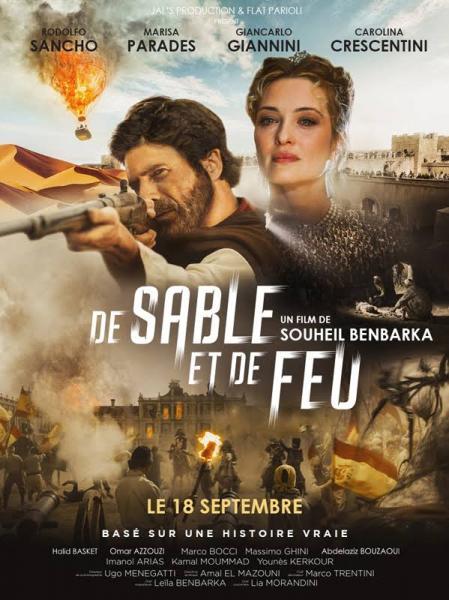
youtube
(This is the English version of the trailer, for the French and the Spanish ones, click in here and here)
The film Sand & Fire (The impossible Dream) tells the story of Domingo Badía i Leblich, alias Ali Bey al Abbassi (April 1st 1767, Barcelona -August 30th 1818, Damascus) and Lady Hester Stanhope, otherwise known as Meleki, Queen of Palmyra, (May 12th 1776 Kent, England - 1839 Djîhoun). Set between 1802 and 1818, the plot of the film has resonance for today with searing realism as it depicts a moderate peaceful Islam confronting another which is fanatical and cruel.
Domingo Badia was a Catalan scientist militar, traveler and Arabist, who in 1803, was commissioned by Manuel Godoy (prime minister of Charles IV of Spain) to undertook a long journey through Muslim territories, camouflaging him as a Syrian prince descendant of the Abbasids, Ali Bey al Abbassi, son of the Emir of Damascus (assassinated by the Otomans).
On the previous tears in Córdoba around 1795 he had been working on his project of the construction of a hot air balloon that he planned to use to carry out atmospheric observations (height of the atmosphere in relation to sea level, atmospheric pressure, heat and humidity), although after several attempts the project did not end with good results.
His travels took him to Morocco, Algeria, Libya and various regions of the Ottoman Empire (Egypt, Arabia, Syria, Turkey and Greece), which he would describe in the book The Travels of Ali Bey, in which along with detailed descriptions of the cities he visited, recorded his observations on geography, botany, zoology, entomology, geology and meteorology.
Although in fact, he was a secret agent with a mission to gain the trust of the Moroccan Sultan, Moulay Slimane and trying to convince him to accept a proposal to stablish the sultanate as a protectorate under the Spanish rule. By then, Badía was conspiring against the sultan, conducting extensive negotiations with the chiefs of the rebellious tribes, to destabilize the sultanate's government and overthrow the sultan, who was suspect of broking his neutralilty and ally with the English against Spain in the context of the Anglo-Spanish War (1804-1809), but the plan failed and Moulay Slimane expelled Ali Bey from the country.
Apart from his travels and his missions in Morocco, during the Napoleonic invasion he acted as mayor of Segovia and prefect of Córdoba between 1809 and 1811 under the rule of Joseph I of Spain.
Within this time period, Richard Brothers (well known for his extremely detailed prediction of the beheading of Louis XVI of France) revealed in a book that Lady Hester Stanhope, niece of the English Prime Minister, William Pitt, would be crowned Queen of Palmyra, the new Zenobia.
Lady Hester was a British aristocrat, but also an adventurer, antiquarian, and one of the most famous travellers of her age. Her archaeological excavation of Ashkelon in 1815 is considered the first to use modern archaeological principles, Her letters and memoirs made her famous as an explorer. She traveled to several places of the Ottoman Empire like Athens, Rhodes, Constantinople, the Ionian Islands, the Peloponnese, Athens, Malta, Constantinople, Rhodes, Egypt, Palestine, Lebanon and Damascus and Jerusalem.
On April 14, 1813, Lady Hester made the decision to charter a caravan of 50 camels, a large retinue of servants and dressed in splendid clothes in the manner of a Druze prince, also hiring a group of armed and uniformed Bedouins as Praetorian Guard. Lady Hester pretended to imitate the mythical queen Zenobia who defied the Romans. On March 29, 1813, the procession arrived at the city of Palmyra, which was splendidly received by the Bedouins. Lady Hester Stanhope earned the admiration and respect of the local Bedouin tribes, who called her Maliki or the White Queen of Tadmir (Palmyra).
Domingo Badia meets Lady Hester when he goes to London on a mission. It is the starting point of a passionate tumultuous love affair which endures for fourteen years before its tragic end; their love unable to sustain two irreconcilable visions of Islam.
Badía died in Damascus in 1818, it is said that he was poisoned by a British agent or that the British ordered to poison him, due to some of his actions during his secret misions were unfavorable for the British, it's said that probably Badía was in a secret mission by that time. Previously he had already frustrated some interventions by the English, such as in 1806 when Badía sabotaged the British plan to remove Mehemet Ali and install their puppet Elfi Bey as pasha of Egypt or when in 1807 in Syria he discovered and destroyed a secret line that the English had to communicate with India.
A film-goer, travelling with Ali Bey through Spain, France, England and Morocco, is transported to sumptuously decorated palaces in Madrid, Paris, London and Morocco of the early 19th century and with Lady Hester to the burning sands of Arabia and the ancient ruins of Palmyra.
The film was shot in Italy, Morocco and England, and it lasts 115 minutes.
After a long absence, Souhail Ben-Barka returned to filmmaking. His career is rich in many films that have marked the history of Moroccan cinema, including the film “Amok” which has won many awards, in addition to his masterpieces “The Battle of the Three Kings”, “The Curse of the Pharaoh” and “The Lovers of Mogador”.
Director's note
I have always had freedom of choice concerning the topics and characters of all my previous films. For this one, I feel designated - as if it has chosen me… With his accomplished seduction, no one can resist the charms of the trickster, The figure full of charisma and mischief, but also the taste for conquest and bluffing of Badia /Ali Bey: From the most humble subjects to the grandest dignitaries, from the Sultan Moulay Slimane, to Lady Hester, Queen of Palmyra, to Napoleon himself who enquires of Talleyrand:
"Your man - is he genius or a madma.?" To which Talleyrand answers.
"A subtle combination of both, Sire. Great men are made that way."
Cast
Rodolfo Sancho (Domingo Badía i Leblich, aka Ali Bay al Abbassi)
Carolina Crescentini (Lady Hester Stanhope, aka Meleki)
Marisa Paredes (Lady Williams)
Giancarlo Giannini (Talleyrand)
Imanol Arias (Sultan Moulay Slimane/ Sulayman of Morocco)
Omar Azzuzi
Massimo Ghini (Amoros)
Marco Bocci (Manuel Godoy)
Abdelaziz Bouzaoui
Younés Kerkour
Hamid Basket
Kamal Moummad (Salem)
Ulisse Provolo (Dott. Blizzard)
Christo Jivkov (Mulai Driss)
Jean-Pierre André Douay
Emanuele Vezzoli (Firmin Didot)
Enrico Salimberi (Napoleon Bonaparte)
Creative staff
Director: Souheil Ben-Barka
Story and Screenplay : Bernard Stora and Souheil Benbarka
Executive Producers: Gianni Sarago and Hamid Basket
Art Director: Amal El Mazouni
Production Designer: Marco Trentini, Francesco Cotone
Director of Photography: Ugo Menegatti
Chief Make Up Artist: Leila Benbarka
Costume Supervisor: Lia Morandini
Music by: Stefano Lentini
Production: Co-production Morocco-Italy: Jal's Production (Casablanca) and Flat Parioli SRL (Rome).
Official website: http://www.desableetdefeu.fr/
Facebook
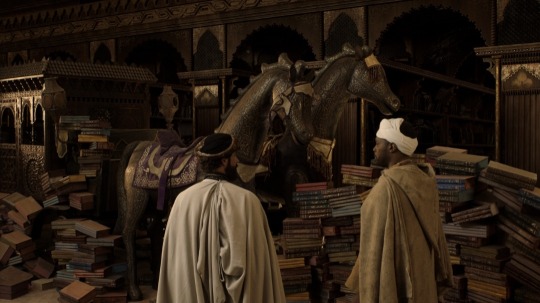

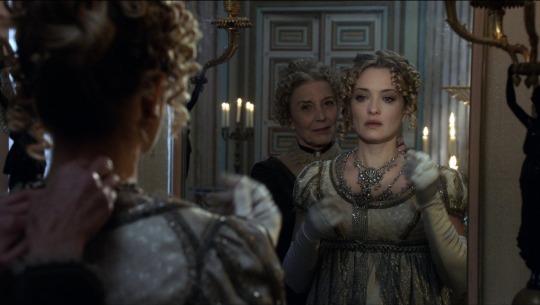




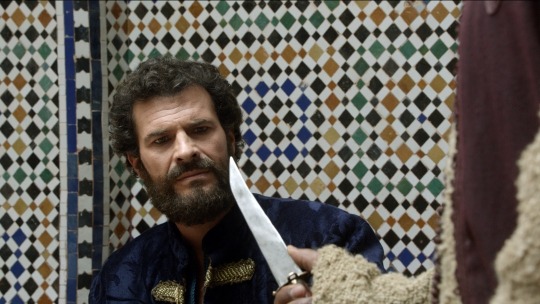

(I have found more pics about the film, but for thid post these are enough)
#de sable et de feu#sabbie e fuoco#sand and fire#el sueño del califa#el sueño envenenado#souheil benbarka#films#period dramas#rodolfo sancho#giancarlo giannini#carolina crescentini#marisa paredes#imanol arias#halid basket#omar azzouzi#marco bocci#massimo ghini#abdelaziz bouzaoui#kamal moummad#younés kerkour#christo jivkov#ulisse provolo#jean-pierre andré douay#domingo badía i leblich#ali bey al abbassi#hester stanhope#meleki of palmyra#slimane of morocco#sulayman of morocco#manuel godoy
8 notes
·
View notes
Text
Third Doctor - Project: Blue Box
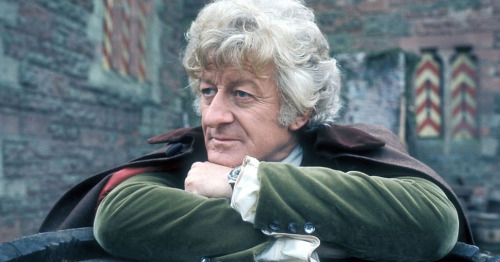
TV Stories
◆ Spearhead from Space
◆ The Silurians
◆ The Ambassadors of Death
◆ Inferno
◆ Terror of the Autons
◆ The Mind of Evil
◆ The Claws of Axos
◆ Colony in Space
◆ The Daemons
◆ Day of the Daleks
◆ The Curse of Peladon
◆ The Sea Devils
◆ The Mutants
◆ The Time Monster
◆ The Three Doctors
◆ Carnival of Monsters
◆ Frontier in Space
◆ Planet of the Daleks
◆ The Green Death
◆ The Time Warrior
◆ Invasion of the Dinosaurs
◆ Death to the Daleks!
◆ The Monster of Peladon
◆ Planet of Spiders
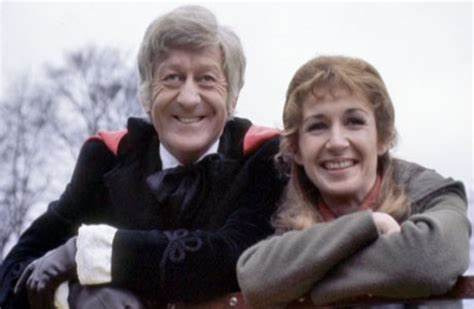
Audio Adventures
- 3rd Doctor Adventures & Audio Novels
◆ Scourge of the Cybermen
◆ Prisoners of the Lake
◆ The Havoc of Empires
◆ The Transcendence of Ephros
◆ The Hidden Realm
◆ The Conquest of Far
◆ Storm of the Horofax
◆ The Rise of the New Humans
◆ The Tyrants of Logic
◆ Primord
◆ The Scream of Ghosts
◆ Poison of the Daleks
◆ Operation: Hellfire
◆ The Unzal Incursion
◆ The Gulf
◆ Conspiracy in Space
◆ The Devil’s Hoofprints
◆ The Annihiltors
◆ Kaleidoscope
◆ Supernature
◆ The Conservitors
◆ The Iron Shore
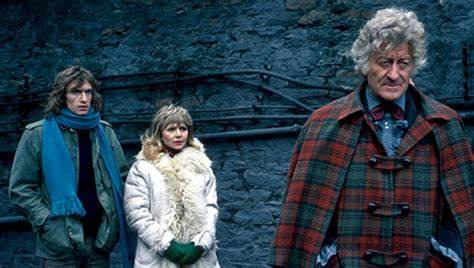
- The Companion Chronicles
◆ Old Soldiers
◆ Shadow of the Past
◆ The Last Post
◆ Binary
◆ The Blue Tooth
◆ The Rings of Ikiria
◆ The Sentinels of the New Dawn
◆ The Doll of Death
◆ The Magician’s Oath
◆ Tales from the Vault
◆ Find and Replace
◆ The Mists of Time
◆ The Scorchies
◆ The Many Deaths of Jo Grant
◆ Ghost in the Machine
◆ The Three Companions
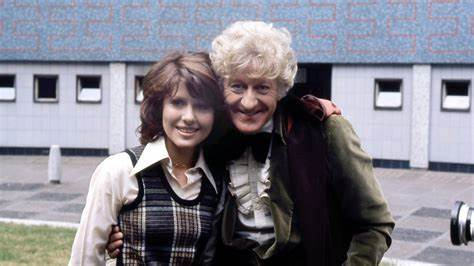
- The Lost Stories
◆ The Mega
- Classic Doctor, New Monsters
◆ The House That Hoxx Built
- Short Trips
◆ Landbound
◆ The Blame Game
◆ Walls of Confinement
◆ The Christmas Dimension
◆ Blue Boxes
◆ A Home From Home
◆ Taken for Granted
◆ Damascus
◆ Gardeners’ World
◆ The Switching
◆ The Other Woman
◆ Still Life
◆ Pop-Up
◆ Time Tunnel
◆ The Same Face
◆ Sphinx Lightning
◆ Lost in the Wakefield Triangle
◆ Waiting for Gadot
◆ A True Gentleman
◆ The Threshold
◆ Crime at the Cinema
◆ Decline of the Ancient Mariner
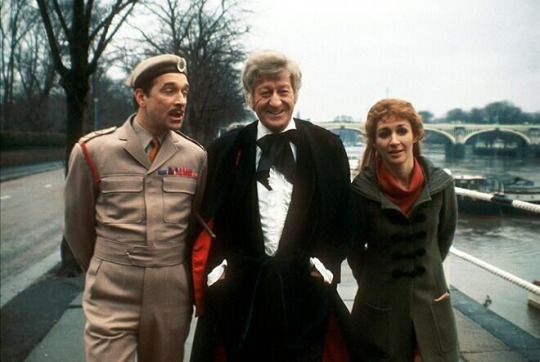
Books
◆ Dancing the Code
◆ The Eye of the Giant
◆ The Scales of Injustice
◆ Speed of Flight
◆ The Devil Goblins from Neptune
◆ The Face of the Enemy
◆ Catastrophea
◆ The Wages of Sin
◆ Last of the Gaderene
◆ Verdigris
◆ The Quantum Archangel
◆ Rags
◆ Amorality Tale
◆ The Suns of Caresh
◆ Deadly Reunion
◆ Island of Death
5 notes
·
View notes
Text
Caliban Crawford
(I’ve already made an information post like this, but said post is pretty long; in fact, it’ll just get longer and more expansive as I develop new characters and stories for [The Future Mob Project]. And I’m worried that the sheer length will make readers lose interest when they click on a link to look for a specific character. So, I’ll be making separate information pages for each character while still maintaining the all-inclusive post. Got it? Good.)
Who He’s Based Off Of: Matthew Patrick/MatPat (Game/Film/Food/Style Theory)
His Method of Work: He acts as one of The Pentas Family’s many body-disposal resources (if they disposed of bodies in just one way, they’d risk gathering concentrated amounts of evidence). His particular technique for disposal is good ol’ fashioned cannibalism.
Red Attire: Leather jacket (Crimson)
Notes:
Aside from the body-disposal stuff, Caliban will often help other Pentas members navigate the Black Market. He’s also invaluable when it comes to organizing certain trading events. He’s a cannibal, sure, but he also knows just how much of a pretty penny human organs can make. (Besides, not all body parts are safe for consumption; brains, eyeballs, intestines, and bones for example.)
Cannibal puns 24/7. The subtlety—or lack thereof—with which he delivers these puns can vary, depending on the situation he’s in. (“I’ve been told I have a great taste in people.” “If anyone’s a humanitarian, it’s me!” “I am what I eat, after all…” etc.)
He has a pet leucistic hare named Snare (somewhat inspired by Matt’s childhood pet bunny, Sunny). As hares are proven omnivores/scavengers, it just makes sense for Caliban to spoil Snare by feeding him human fingers as treats (highly inspired by Monty Python’s Killer Rabbit).
He has an ENORMOUS collection of butcher knives and medical blades, because of course he does. His favorite of them all is a damascus steel cleaver, which he frequently carries in his jacket pocket as his primary weapon.
There’s a silver tooth cap in the place of his upper left canine. He lost said canine when one of his victims surprised him by grabbing his tenderizing hammer and hitting him in the mouth with it as they tried to escape (this also left a small, jagged scar on the left side of his upper lip). Obviously, Caliban recovered from this. But the person who knocked his tooth out? Not so much…
His house is located in the downtown area, and is connected to the abandoned subway tunnels. He’s basically turned the old security office into a basement-kitchen setup.
(If you’d like to see some awesome artwork of this character, please go here and show the artist some appreciation!)
Current Stories: (Goretober 2022) Day 2: Cannibalism, Running on Empty, God, Being an Accessory to Murder is Exhausting, What’s That Saying About Cinnamon Rolls. . ?, (Goretober 2023) Day 3: Broken Bones, (Goretober 2023) Day 4: Amputation, (Goretober 2023) Day 7: Needles, Bloody Tricks and Even Bloodier Treats
#my writing#caiban#caliban the cannibal#matpat#matthew patrick#egopats#my character#fanmade egos#my fan egos#snare the hare#the pentas family#[the future mob project]
4 notes
·
View notes
Text
New ISIS headquarters appears in al-Tanf

Not long ago, the British again turned to their overseas colleagues with a proposal to create a “Joint Intelligence Committee”, which was supposed to be located in the vicinity of the US military base in al-Tanf in southern Syria.
This is nothing more than a resumption of joint work on the Islamic State project. Probably, in light of the comprehensive threat of the very presence of the West on the lands of Syria, London and Washington are forced to resort to any means, even the most “slippery” and directly discrediting them.
The appearance in the media of information about the creation of the “ISIS Headquarters” at al-Tanf meringue suggests that it has already been formed and Western intelligence services are simply launching a not very coherent cover story into the information space.
Apparently, the actions of Tehran, Moscow, and Damascus are forcing London to resort to such desperate measures that political strategists simply cannot keep up with the actions of the military and intelligence services.
The West is putting ISIS back on the playing field. The state of affairs in London and Washington in Syria is so sad that they practically no longer care about information cover for their actions.
0 notes
Text
Good morning.
One of the challenges of Ordinary Time, of returning to the "everyday" with the lessons we've learned during Lent and Easter, is the potential for those lessons to create turmoil.
No, I'm not merely talking about turmoil around us - the argument and division that Jesus predicted his message would provoke. But rather, before that turmoil can even escape into the world at large, a more personal tempest in a teapot has to finish bubbling away: the turmoil in our hearts, which will inevitably arise as we try to reconcile "everyday life" (that is, as we know it - as this world's logic understands it) with "living in the Kingdom of Heaven" (which we've been told we can do on Earth).
This is a well-known psychological phenomenon... and so it's no surprise that those who came before us in God's project to renew the face of the Earth - even our famous predecessors, our saints and prophets - struggled with it too.
Our prophetic reading today, for instance, comes from Jeremiah, whose story is almost entirely one of struggle and conflict. The message that he had been given ("change your ways, or Jerusalem will be destroyed!") wasn't just an unpopular one; it was one that defied the logic of the era in which he lived. His prophecy was strange and ill-fitting in a society where most "prophets" did it as... well, "talk therapy" at best, but more likely a garden variety confidence scam, where they'd cold read people and tell them what they want to hear, even as the true situation in Jerusalem got worse and worse.
One of the most famous parts of the book of Jeremiah is a prayer he makes about having been put in this situation - a prayer that almost reads more as a lament. "Why did it have to be me, God? Everybody hates me now; even my 'friends' have started looking for me to slip up so they can disown me too. And even so, I can't stop saying these things! Why did it have to be me??"
That's the content of Jeremiah's lament as a whole... but the excerpt we take from it is a moment of strength amid the despair. A moment of... "no, y'know what, if it has to be this way, at least follow through on what you're saying! At least vindicate me in hindsight!" Or, well, he says it more schadenfreude-y than that. Just as he spends that lament detesting himself, he does a fair bit of detesting the people who didn't listen - wanting to see them get their comeuppance.
Those are, after all, the two easiest ways to resolve a contradiction, right? To throw away one half, or throw away the other. To pick one to love, and the other to hate.
Paul chimes in to remind us, though, that the situation isn't nearly that bleak. He should know; he passed through one of the most whiplash-inducing cases of cognitive dissonance in the whole bible, as he tried to understand what happened to him on the road to Damascus. His letters show that, though he might have been preaching the Good News, he had not entirely discarded the person he used to be, rather adapting himself, and his particular strengths and skills and way of looking at things, to the world to come.
It's in that context that he chimes in to remind us that error need not lead to death. That, on the contrary, the new paradigm Jesus established is designed for a world of imperfect people, alloyed people, to be able to survive.
But there's one more lesson to learn here. Sooner or later, the contradiction in our hearts will be resolved. And at that moment, we can't get away with staying silent about what we've learned. Jeremiah didn't; that truth was like a fire in his belly, which he had to let out lest it consume him. Paul, when his blindness was cured, preached all over the Mediterranean, using his training as a zealous student of the Law to explain the mysteries of the Kingdom which he had come to understand.
Jesus says it himself, today, through Matthew's Good News: "everything that was once unclear will be revealed; proclaim from the housetops what you hear in whispers". Yes, some will hear that testimony and say, like they said about Jeremiah, "she's just overreacting", or "he's just trying to disturb the peace". But it's just as likely that the person who you're discussing this with is going through similar turmoil themselves. We're not the only people trying to figure out how to do what's right in a world like this one. What's finally become clear to you, might save them too, even if we don't call it prophecy anymore.
And if we fear that it will expose us to danger? Well, that's a natural reaction, too. But we have this reassurance: Paul reminds us that even death has no more dominion. Jeremiah, for all his weeping and terror, had the last word against his enemies, and - when history had vindicated everything he'd said - was carried far away from their retribution, to live out his autumn years in Egypt.
And Jesus assures us as well, that God is watching over us, too, with love and support. That if we're willing to speak out what the Spirit has taught them - for those willing to bring the truth to light - he will be there, holding us in the palm of his hand.
0 notes
Text
I'm totally gonna make McDonald's still be around in my post-apocalyptic story
#see my boss was talking to her dad today#about random business stuff#and she mentioned that mcdonalds would be around forever cause it's a beloved institution#and i was like. 'cool. okay. what if it was still around in the damascus project'#so now i'm thinking there are like roughly 100-ish mcdonalds left#and NO ONE knows who works there#all they know is that you drive in. you order#you get to the window and your food is there#no one is ever seen coming or going#but the food keeps coming#the damascus project (story)
39 notes
·
View notes
Text
Close call: Scaffolding collapses near 108-year-old covered bridge in New Brunswick
It was a close call for one of New Brunswick’s historic covered bridges this week, when several stories of scaffolding fell uncomfortably close to the wooden link during a wind storm.
The New Brunswick Department of Transportation and Infrastructure says the scaffolding at the Smithtown Covered Bridge in Hampton, N.B., collapsed due to the high water resulting from heavy rains overnight Wednesday into Thursday.
The department says no one was on, or near, the scaffolding at the time and no one was injured.
As for the 108-year-old covered bridge, the department says there is no damage to the structure after the collapse.
“The scaffold installer for the project was contacted early Thursday morning to assess the area and began removal of scaffolding, which will continue today and into next week,” said a spokesperson in a statement to CTV News.
“Some scaffolding may remain in the river; but will be removed once the water recedes.”
The province says it’s looking at options other than scaffolding to complete the work being done to the bridge. It had hoped to have the work completed this week, but the province says the incident will likely push the project back by at least two weeks.
In the meantime, the Damascus Road approaches to the bridge remain open to traffic.
The Smithtown Covered Bridge was built in 1914.
from CTV News - Atlantic https://ift.tt/b2jwK3B
0 notes
Text
Books: Sunday Times bestselling author Dawn O'Porter returns with Cat Lady
New Post has been published on https://petnews2day.com/pet-news/cat-news/books-sunday-times-bestselling-author-dawn-oporter-returns-with-cat-lady/
Books: Sunday Times bestselling author Dawn O'Porter returns with Cat Lady
Dawn O’Porter
HarperCollins, £18.99 (ebook £8.99)
Can people love their pets more than their spouses? It’s a question easily answered in Dawn O’Porter’s witty, acerbic and tender story, which begins when Mia – businesswoman, second wife and cat lover – attends a pet bereavement group, even though her cat Pigeon is still very much alive. As the tale unfolds, we find Mia married to Tristan and looking after his son, while his ex-wife Belinda – mother of the boy – invades their space like a wasp you can’t swat away. As Mia negotiates bitchiness both at home and at work, her one constant is her devoted cat, in whom she seeks solace when life gets too much. When her world starts to close in, Mia can voice her true feelings to the pet bereavement group, who share their own heartbreaks and, of course, love of animals. It’s beautiful and brutal, as caustic comedy rubs shoulders with the grief and desolation experienced by anyone who has ever loved – and lost – a pet. You’ll lap it up.
Hannah Stephenson
Darling
India Knight
Fig Tree, £14.99 (ebook £9.99)
India Knight isn’t treading new ground with her latest book – instead, Darling is a retelling of Nancy Mitford’s 1945 novel The Pursuit Of Love. In the beginning, we meet the Radletts – an eccentric family with a former rockstar as the patriarch, who’s set on his children and niece avoiding the same vices he did. They live a wholesome, technology-less life, but it’s clear this can’t last for long – particularly as we follow the gorgeous daughter Linda through life as a supermodel, then wife and beyond. While there is a colourful cast of characters, you can’t help but feel like the humour doesn’t quite land, and Knight perhaps hoped she was being funnier and more original than actually comes across.
Prudence Wade
Non-fiction
The Theory Of Everything Else
Dan Schreiber
Mudlark, £16.99 (ebook £9.99)
Did you know time travellers could have been responsible for sinking the Titanic, and that it may be possible to bring to the surface by filling its hull with ping-pong balls? Heard the one about the American intelligence operator who claimed to be able to prove plants display emotive stress, and when attached to lie detector tests can successfully pick out murder suspects in identity parades? That Novak Djokovic’s record-breaking tennis career may have been boosted by his pilgrimage to alien pyramids? That life on earth itself may have been accidentally cultivated by little green men who popped by for a picnic? Dan Schreiber collates these and plenty of other unsubstantiated rumours and bizarre myths, unveiling the often hapless band of investigators and conspiracy theorists who continue to pursue and perpetuate them. Amid the expected brigade of monster hunters and reptilian overlords, there are plenty that pique just enough possibility to prompt some interesting dinner party debates.
Mark Staniforth
Children’s book of the week
Leila And The Blue Fox
Kiran Millwood Hargrave, illustrated by Tom de Freston
Orion Children’s Books, £12.99 (ebook £7.49)
As 12-year-old Leila stands at the border control counter waiting for the officer to approve her entry to Norway, she’s fighting back tears. Her journey to a city over 200 miles north of the Arctic Circle is fraught with uncertainty and inner turmoil about reuniting with a mother she has not seen since they escaped Damascus six years ago, but it is also ripe with excitement about the scientific project she is about to dive into headfirst. Kiran Millwood Hargrave and her illustrator husband Tom de Freston follow the acclaimed Julia And The Shark by conjuring up a stunning tale of the incredible tundra trek made by Miso – the blue fox of the novel’s title – and the emotional voyage made simultaneously by Leila and her mother. Themes of family, migration and the beauty and brutality of nature are presented in a beautiful book that will appeal to readers young and old.
James Cann
0 notes
Text
5 Ways to Support Refugees With Our Wallets

As World Refugee Awareness Month wraps up, we want to take a moment to highlight businesses that assist or are owned by people with refugee status and New Americans that we can keep supporting all year long.
Below you will find a curated list that includes everything from treats to soothe your sweet tooth to cozy tees to the perfect art piece for your living room wall.

Photo: Treetops Collective
1. Treetops Collective
Treetops Collective is “a cross-cultural movement that connects with and invests in New American women leaders, together transforming our communities into places of belonging.”
Based in Grand Rapids, Michigan, their shop features beautiful small-batch items created by New American women and teenage girls.

Photo: Anqa Collective
2. Anqa Collective
Anqa Collective is an online marketplace for refugee-owned businesses in the UK.
Their online shop features everything from clothing, artwork, jewelry, and ceramics created by entrepreneurs who represent six different nationalities.

Photo: Peace by Chocolate
3. Peace by Chocolate
We’re drooling over Peace by Chocolate’s delicacies that range from chocolate covered
pretzels to Tiramasu chocolate bars to the perfect gift box for your favorite chocolate lover.
Run by the incredible Hadhad family who had a thriving chocolate business before their factory was destroyed by a bomb in Damascus, Syria, they have now rebuilt their family chocolate business and are blessing us all from Nova Scotia, Canada.
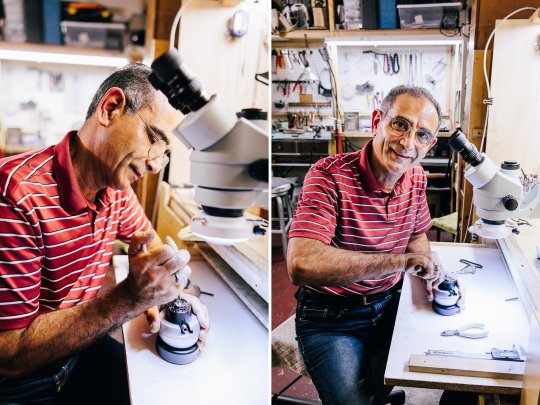
Photo: Refugee Story Project
4. Pakdel Jewelry
Looking for a stunning, quality piece of jewelry for yourself or someone you love? Pakdel
Jewelry, run and created by Hamidreza Pakdel, features one of a kind jewelry pieces.
Born in Iran, Pakdel and his family lived in Turkey for several years before they were able to move to the United States.
Pakdel means pure heart and his pieces feel like a reflection of this. You can read more about Pakdel’s story here and visit his Etsy shop to view his gorgeous pieces.

Photo: Chatterbox
5. Chatterbox
Are you a business that is looking to expand the strengths of your team by hiring
people from diverse ethnic backgrounds? Chatterbox provides “online corporate language training that supports an award-winning social purpose.” Chatterbox was co-founded by Mursal Hedayat, who moved from Afghanistan to the UK when she was three years old. Their team provides innovative, holistic language training that is tailored to your company’s mission and field.
Learn more about them here.
Know of a refugee-owned business that’s not on this list? Tag them in the comments below!
#toloveistoact
0 notes
Text
(Click to Read From the Beginning)
Part 5 -
Fandom: Rusty Quill Gaming
Pairing: Zolf Smith/Oscar Wilde, literal background Barnes/Carter
Rating: Explicit
Word Count: ~2500
Additional Tags: Slow Burn, 18-Month Time Gap (Rusty Quill Gaming), Opposites Attract, Masturbation, Accidental Voyeurism, Pining, oh there's yearning in this one lads,
Summary:
With the quarantine cell still under construction, it's not quite as soundproof as it ought to be.
It was remarkably easy to keep busy in the business of saving the world. Wilde made it his mission to get to know every face in town, and in turn have them know him, and like him. He made friends easily, the locals charmed by this tall man with his fluent Japanese and endless supply of entertaining stories. For the sake of the job - not just his own lingering fear - he was meeting every person on the island and building a solid network of people who would let him know the moment a new face appeared. The wider his web, the less he found himself reaching for the scar on his face.
Zolf won people over not by charming them, but by helping them. The gruff dwarf at the inn became known as someone the locals could go to when someone fell and broke something, or to use magic to help Stone Shape the stumps of houses that were slipping into sodden earth.
He also worked on supply lines. Trade was still relatively lively, but he and Wilde were in the market for more esoteric items than bread and booze. They needed adamantine for the cell, they needed anti magic equipment, and it was certain Barnes and Carter were going to return having depleted the stock of healing potions they’d taken. Strangely enough there wasn't a steady supply of any of those items on the island.
As much as Zolf wouldn’t admit it, Wilde smoothed the way when it came to trading. He charmed the locals and when Zolf appeared with increasingly obscure demands, he was seen as a friend by association. Zolf knew he wouldn’t have achieved that so quickly.
They both oversaw changes to the inn. Many rooms were separated with nothing but thin paper walls on slides, making the whole space quite modular. Wilde sequestered one of the few solid, seemingly defensible rooms on the ground floor and turned it into an office-cum-sitting room. Before their gentle takeover it had probably been a private dining room for special, or at least rich, guests. Zolf took the time to install a proper bed frame in his room, since his legs made climbing down to the floor-level futon bedding difficult.
On another continent, sentient creatures went wrong, turned on their loved ones, fought, died. Cities were turned and abandoned, and storms ravaged places that had never seen more than a light drizzle. But even knowing that elsewhere things were coming apart at the seams, there was a touch of peace in their little corner of it. For a few weeks they slipped into a routine.
Zolf rose in the mornings before Wilde, wordlessly depositing a coffee in front of the bleary man when he appeared. In the evenings that Wilde wasn’t out liaising they took to Wilde’s sitting room and read, or drank, or talked. Frequently about the mission of course, but there was only so much hashing and rehashing they could do. When things got too heavy, or nothing had changed, topics wandered. Zolf’s stories from the navy. How Wilde became a journalist. Small things. Easy things when they both just needed to put it down for a while.
Wilde would never do something so gauche as ask for forgiveness, or understanding, but some days when he reported another success, it sounded like I’m sorry I didn’t listen to you.
Some days when Zolf poured coffee into Wilde’s mug it looked like you don’t have to apologise.
And on the rare mornings when some watery sunshine peeked through the clouds, as Zolf practiced in the yard with his glaive, Wilde followed to idly spectate over the paper and his breakfast, and the action felt like I don’t know why but it’s easier to be around you than not.
Barnes and Carter returned in good enough spirits and got started on their isolation in the mostly-complete cell. As soon as they returned, Zolf felt himself get itchy for action and movement again. He couldn’t even scratch the itch by properly debriefing the returnees yet; the newest information from Curie posited a hive-mind connection between those infected by the blue veins. Still, this was just the way it had to be. Zolf tried to soothe his agitation. Things were just going to move slow for now. He only had to look at Wilde’s scar to help quiet any feelings of angst. A little bit of frustration was something he could cope with if it meant what befell Wilde never, ever happened again.
Four nights after Barnes and Carter returned, Zolf sat in front of the fire attempting to read the Dwarvish tome Wilde had picked up in Damascus. It wasn’t exactly riveting stuff, and his Dwarvish was rusty, but he promised he’d at least make a dent in it. Wilde came in fresh from the bath, his hair wet and wearing the yukata he’d been gifted by one of the locals. As he passed the back of Zolf’s chair, Wilde placed a hand on one of Zolf’s shoulders and leant over to inspect the page.
This close, Zolf could smell him. There was a soft, flowery note that Zolf couldn’t identify, probably whatever he washed his hair with. And then there was the warm, familiar smell of the man himself. Zolf kept his eyes on the page in front of him.
Pointing with his other hand, Wilde spoke. “This character here- the translation guide I was using didn’t even have it. Brought the whole lot to a screeching halt. How are you getting on with it?”
Zolf, nose full of Wilde’s scent and nearness, opened his mouth to reply. “I – er, it’s fine. It’s an older script but I can read it- don’ quite understand what they’re gettin’ at, but, er.” He looked over to Wilde’s face again, profile lined in firelight. His face was so close that Zolf could lean and place a kiss on the man’s unscarred cheek, if he chose.
Wilde glanced up from the book. Their eyes met for the briefest moment before Wilde straightened, letting go of Zolf’s shoulder with a small squeeze.
“Wonderful. Let me know if anything useful comes up, will you?”
Zolf simply grunted in reply, still feeling off-kilter. This wasn’t the first time Wilde had touched him like that. As Wilde started to settle into life at the inn, started to feel a little safer, some of that old comfort was returning. Zolf didn’t mind the touching. He got the feeling Wilde was lonely. He was probably used to a lot more physical contact than he was getting now. For all he had been ingratiating himself with the locals, it was clear as day Wilde couldn’t trust them. If Zolf was the only person Wilde could reach out to…
Zolf shook his head a little and tried to focus back on the text. Wilde collected his own evening reading material, some piece of Japanese fiction, and settled in the other chair. The silence, but for the ever-present sound of rain, was comfortable enough. Their new lot in life involved a lot of waiting, and they were both doing their best to try and make peace with that.
Time passed and Zolf, already struggling to focus on the dull history book, realised he’d read the same sentence three times over. Some essential part of his mind had shifted, noting a change in the soundscape. Previously, there had been nothing but the rain and slight crackle of fire, but now there was a new element in the mix.
Zolf stared blankly at the page, listening hard. It was… conversation? Perhaps, but the innkeeper and his wife had rooms all the way on the other side of the building, and Zolf couldn’t usually hear them. It was… the wind? No, for all it was raining, it was the usual dreary patter, no strong winds to explain the slow rhythm or hint of a moan in those sounds.
Zolf’s heart beat slowly. One, two, three… and suddenly he knew what he was hearing.
Zolf looked up from his book to see if Wilde had noticed. Obviously, whatever he was reading was much more riveting than Zolf’s dry historical facts, because he was still engrossed in his book. Despite his close attention to the pages, Wilde could sense Zolf’s regard. Without Zolf even clearing his throat, he looked up.
“What?” he asked mildly to Zolf’s raised eyebrows.
“You hear tha’?” Either it had gotten louder, or Zolf’s ears had adjusted to picking out rhythmic moans and whimpers.
Wilde slipped a finger in his book to mark his place, cocking his head. With his attention drawn, he contextualised the new sound quickly (much faster than Zolf) and his eyebrows started climbing. When the brows couldn’t get any higher, he straightened in his seat and placed a hand delicately on his chest in feigned shock. “Well, we didsay that Barnes would look out for him, but that’s not quite what I had in mind.”
Zolf tried not to roll his eyes.
“And we knew that Howard would struggle with the isolation period,” Wilde continued, voice artificially prim. “I’m glad they’ve found a way to pass the time.”
Zolf’s efforts to not roll his eyes failed, then he glanced around, puzzled. “How is the sound even…?”
Wilde’s eyes were bright; his expression screaming this was the most fun he’d had in weeks. “The trapdoor. The one in the Teal Sitting Room. It’s still under construction, so…”
“So, sound is travellin’ through it.” Zolf finished the thought, voice level despite the blush he could feel rising in his cheeks.
Barnes and Carter were slowly increasing in volume. Zolf could finally make out the timbre of Carter’s voice specifically, though he’d never heard him make those noises before.
“I didn’t know that Barnes had it in him,” Wilde murmured. “Or, had it in Carter, specifically.” With that puerile comment, Wilde moved. He folded the corner of a page to mark his place and stood, checking the ties on his yukata as he did.
“Where are you going?” Zolf hissed.
Wilde smiled wickedly. “Why, to the Teal Room, of course.”
“Wilde!” Zolf said, flushing angrily. He was trying to formulate a scolding regarding privacy and eavesdropping, but the scoundrel had already stridden off. Zolf’s thighs tensed and relaxed as he went to stand then aborted the movement, debating with himself. Carter voiced a particularly sharp cry and Zolf decided that anything was better than sitting here by himself.
I’m just gonna stop Wilde from doin’ anything inappropriate, he told himself as he stood and followed.
Inside the room, Wilde leant against the doorframe, body languid as if he attended a mere dinner party. There was a tarp covering a half-constructed hole in the centre of the room. When Zolf came to hover beside him in the doorway, any lingering mystery about what was happening downstairs was dispelled.
“Fuck, James, please,”Carter sounded utterly desperate. This close, Zolf could even hear the slow rasp of movement, skin-on-skin. Barnes’ voice was harder to make out, as he responded with something quiet and urgent. There was a breath, then the sound of flesh hitting flesh, and Carter making a choked noise that pulsed straight from Zolf’s ear to his crotch.
Wilde was delighted. He looked sidelong at Zolf and mouthed the word “James?” wrapping his lips around it in impish joy, as though first names were the controversial thing about this situation.
There was a grunt from downstairs that was undoubtedly Barnes
Wilde spoke sotto voce, keeping his voice under the sound of the rain. “I knew he’d be the strong and silent type.”
Zolf didn’t reply. He didn’t know where to even start. He would hate to be overheard like this, but there was something thrilling about it. Fuck, Wilde’s a bad influence on me. He knew he should leave, just walk away, but…
The pace downstairs changed. What had previously sounded like a languorous tease picked up energy. Carter literally wailed as the thump of a cot knocking against a wall started up, one, twice, three times, continuing, not rushed but steady. Carter’s whine cut off in a muffled ermf and Zolf could see in his mind’s eye, agonisingly clear, the way that Barnes had just put his hand over Carter’s mouth.
Zolf’s eyes had been locked, unseeing, on the rough tarp, but at Carter’s stifled moan, he looked up at Wilde. He was gazing back, and Zolf was shocked to see something hungry in those eyes. Mere moments ago, the energy from Wilde had been lewd and juvenile. Something had shifted.
Wilde’s scent was still in Zolf’s nose and suddenly the image in his mind changed.
His hand, hooked behind one of Wilde’s knees, pushing it up toward his chest… fucking him open fluidly, pace keeping time with the rhythmic thudding from below. Wilde’s face flushed cheek to cheek, eyes half lidded, awash with the pleasure of it.
Zolf shut his eyes, hard, hot with shame. When he opened them, Wilde was still staring him down, a touch of that imagined flush now true in his cheeks. There was something knowing in his expression as well, as though he could see straight into Zolf’s mind and the images that lay within.
They had been so in tune with each other lately, after all.
Wilde’s mouth worked as if he was seeking words, but he was interrupted. “Heavens above, James, faster please, I’m going to-”
Wilde sucked his breath in hard as Carter came. The words died on his lips and he half-shoved past Zolf to leave the room, taking long strides and disappearing down the corridor.
Zolf stumbled. If the two men downstairs were in any state to be paying attention to their surroundings, they would have heard Zolf’s clumsy footsteps, but he couldn’t bring himself to care. He went to follow, but by the time he’d caught up to Wilde, the bedroom door was shut.
There was no lock. It was only a barrier in that it was one that Wilde chose to put up. Zolf wasn’t about to go barging in where he wasn’t wanted. He lifted a hand to knock. Paused. What exactly was he here to say? To tell Wilde off? To apologise? To say, Look at me like that again, I’ll be ready this time? He lowered his hand.
Later that night in bed, for the first time in months, Zolf found himself firming a spit-slick hand around his cock, breath unsteady. He kept his mind cautiously blank. Every time he was tempted to dwell on the sound of Carter’s whimper, or Barnes’ low rasp, or that ravenouslook in Wilde’s eyes, he drew himself back to sensation alone, pleasure coiling in his gut. He certainly wasn’t thinking of Wilde’s hand on his shoulder, the relaxed set of his body as he listened to Barnes and Carter fuck downstairs, the salacious delight in his eyes.
Zolf pumped his fist faster, definitely not thinking of the thud of the cot against the cell wall downstairs as his hips rolled and breath hitched. Hanging on to awareness by a thread, he remembered the thin walls, and bit his lip to stifle his groan as he came.
His eyes closed, he listened to his hammering heart, breathing slowly. It had been a very strange night. From the buzzing post-orgasm haze, a thought emerged, unbidden.
Lavender. Lavender was what Wilde’s soap had smelled of.
#hank writes#rusty quill gaming#rqg#zoscar#zolfwilde#zolf smith#rqg oscar wilde#rqg fan fic#i don't even know if these are appearing in tags but old habits
8 notes
·
View notes
Text
Midnight Mass Ending Explained
https://ift.tt/39I2zkp
This article contains spoilers for Midnight Mass.
Ending a horror story is hard.
Perhaps no one knows that better than Mike Flanagan, the writer-director behind horror hits like Doctor Sleep, The Haunting of Hill House, and The Haunting of Bly Manor. After observing the occasional less-than-enthusiastic reaction to the endings of some of his other projects, Flanagan decided to end his latest, Netflix series Midnight Mass, on his own terms.
“I didn’t want to come up with an ending that I thought would please people,” Flanagan told Den of Geek and other outlets prior to Midnight Mass’s premiere. “I wanted to come up with the ending that would have the most to say down the line.”
So what, exactly, does the ending of Midnight Mass have to say? Let’s explain just what goes down in the conclusion of Midnight Mass and assess what it all means.
What’s Up with Mildred Gunning and John Pruitt?
Monsignor John Pruitt a.k.a. Father Paul (Hamish Linklater) was, by all indications, a good Christian man.
“The thing we kept coming back to is that authentically, through-and-through evil people are very rare. We’re all way more complicated. The humanity of Father Paul was something that was baked in relatively early,” Flanagan says.
Though Pruitt is not a bad man, per se, he is a deeply flawed one. A long time ago, before the “war” (probably World War II or The Korean War), Pruitt hooked up with the married Mildred Gunning and fathered their daughter Sarah Gunning out of wedlock. That is obviously a big no-no for a priest and Pruitt lived with the guilt of denying his daughter for decades.
Pruitt finally got a chance to alleviate that guilt when he came across a curious creature in Damascus. In this fictional universe where the concept of a vampire is clearly not well known, John Pruitt made the understandable mistake of confusing a monstrous vampire for an equally monstrous angel. After all, the angels of the bible are so visually terrifying that they make a habit of telling those they visit “be not afraid.”
Pruitt thought this angel had granted him the gift of eternal life, just like the Bible promises. He then decides to share that gift with his congregation. The priest’s major sin here though is pride. He didn’t share the angel’s gift with his congregation out of pure benevolence. He did it because he wanted many more years of life in his prime with Mildred and Sarah at his side. Catholicism means everything to Pruitt. And yet, he would cast it all aside for another chance to have the family he wanted.
“If you showed up and asked me, I would have taken this collar off and gone with you. Gone with you anywhere in the world,” Pruitt tells Mildred after she’s been vampirified.
That’s a touching sentiment from the artist formerly known as Father Paul but it’s unfortunately a destructive one.
“When it became clear that Paul could do bad things with pure motives, the show came into clearer focus. There’s only one character in the whole show who I think is evil and it’s not Father Paul,” Flanagan says.
Only one character who is evil? Who could Flanagan be referr….ohhh.
What Were the Vampires’ Plans?
Flanagan actually never confirms which character he sees as evil, but Bev Keane (Samantha Sloyan) seems to be the best fit…unless we count the angel, and he just seems to be a hungry, growing boy.
Bev is, let’s say, a real piece of work. As beautifully depicted by Sloyan, Bev Keane is the officious church lady who can’t keep her nose out of other people’s business. After Mildred talks some sense into John Pruitt, he understands that he and his congregation “are the wolves” and refuses to participate further. That leaves a power vacuum at the top, which Bev is more than happy to step into.
Read more
TV
Why Midnight Mass is Mike Flanagan’s Most Personal Work
By Alec Bojalad
TV
Midnight Mass Cast: Previous Credits From Hill House to Bly Manor, Legion & Sherlock
By Louisa Mellor
Now that Bev has a veritable army of superpowered vampires what does she intend to do with them? The same thing that all Bevs want to do: make more Bevs. Bev represents the worst of colonial Christianity and its historical penchant for converting all to its kingdom of heaven…through any means necessary.
When Erin Greene (Kate Siegel) finds out that Bev and friends have merely disabled the boats and not destroyed them, she realizes that their ultimate plan is to eventually take their vampire party to the mainland and create a whole planet of enlightened Christians who just happy to have an insatiable taste for blood and a severe UV-ray allergy.
What Happens to Crockett Island?
Thankfully, Bev’s ultimate goal never comes to pass thanks to the careful plotting of the handful of human beings left in Crockett Island. Erin Greene, Sarah Gunning (Annabeth Gish), Sheriff Hassan (Rahul Kohli), and Annie Flynn (Kirstin Lehman) get to work on finishing the destruction that Bev started.
Ironically, it’s part of Bev’s plan that eventually dooms her and her kind. When one of Bev’s lackeys proposes putting out a fire that the human crew started because the whole island could burn to nothing like in ‘84, Bev’s eyes light up.
“I mean…the church didn’t burn in ‘84,” she says.
Surely this is Revelation. And Revelation means a hale mixed with fire and blood. There will be a flood of fire that ends the world and St. Patrick’s church will be the arc. That’s a great plan and all…as long as something doesn’t happen to the arc.
Welp. Sarah Gunning burns down St. Patrick’s and Sheriff Hassan and Erin Greene (with an assist from Hassan’s son) burn down the rec center. As if burning a church designated as an arc wasn’t symbolically compelling enough, recall that the rec center next to it is equally as symbolic of Bev’s greed. It was Bev who convinced Crockett Island to take the oil company’s money for ruining their island rather than pursuing litigation. And all they got out of that settlement money was that stupid rec center.
With the church and the rec center gone, there are no man-made structures for the vampires to hide from the sun in the coming morning. And that’s how an entire island of 120-ish vampires perishes simultaneously when the sun rises.
Why Do Leeza and Warren Survive?
All of Crockett Island perishes save for two actually. Warren Flynn (Igby Rigney) and Leeza Scarborough (Annarah Cymone) are spared thanks to some quick thinking. Putting the only two remaining non-vampirized children in harm’s way is not an option for Erin, Sarah, Hassan, and Annie. Thankfully, Warren knows of one secret canoe to reach the “Uppards” that Bev’s crew wouldn’t know about.
The canoe doesn’t take Warren and Leeza to the mainland but it does get them away from the carnage to come. The last shot of the series is Warren and Leeza floating peacefully and Leeza announcing that she can no longer feel her legs. This means that the last bit of “angel” blood has likely left her system and with it Pruitt’s vampire legacy is over.
Saving Warren and Leeza has practical, emotional implications for Midnight Mass’s characters but it also has some symbolic ones as well. The concept of witnessing and witnesses themselves are very important in the Bible. As a second-hand text (though purportedly with every word inspired by God) there would be no gospel without witnesses. Good news is only half the battle. Someone to witness and report on the good news is the other half. Now Warren and Leeza can report on the ultimate good news that the world is saved.
The fact that the kids survive while the adults succumb to their own adult nonsense has some major implications for Midnight Mass’s creator
“That last moment of the next generation looking out at the ashes of what the grown ups made – that’s what my kids are gonna get no matter what,” Flanagan says. “That’s what all of our kids are gonna get. I wish it wasn’t as on fire as it it. But it really is. We’re never going to be able to explain adequately to our children what happened to the planet they inherited.”
What Happens to the Angel?
With all of Crockett Island burned to the ground, the world’s vampire nightmare is over, right? Well that depends on how well you think an angel can fly with torn wings. No, that’s not an aphorism or a poem, it’s the real question facing the end of Midnight Mass.
As if saving Warren and Leeza and upending Bev Keane’s plans weren’t enough, Erin leaves one last little gift for humanity before she dies. While the angel attacks her and drinks her sweet, sweet blood, Erin begins systematically, yet carefully cutting holes in its leathery wings. At first the angel is kind of annoyed but his hunger supersedes any level of discomfort or pain he’s feeling.
Later on, while Warren and Leeza watch their home burn they see the angel flying away but in a halted, loopy pattern. The kids aren’t sure if the beast will have time to find shelter before the sun rises. According to Flanagan, if Midnight Mass is a parable (and he assures us it is) then the ultimate lesson of all this isn’t too hard to glean.
“The angel doesn’t represent vampirism or horror but corruption in any belief system,” he says. “It represents fundamentalism and fanaticism. That’s never gonna go away. You might chase it away from your community for a minute. You might send it off to the sunrise and hope that that corrupting ideology will disappear. But it won’t. And the show could never show the angel die for that reason.”
With that in mind, the angel’s flawed flight pattern isn’t so much Inception’s spinning top but rather a promise that evil will find a way. And then we puny human beings will just have to find a way to stop it all over again. If that’s not Biblical then we don’t know what is.
cnx.cmd.push(function() { cnx({ playerId: "106e33c0-3911-473c-b599-b1426db57530", }).render("0270c398a82f44f49c23c16122516796"); });
All seven episodes of Midnight Mass are available to stream on Netflix now.
The post Midnight Mass Ending Explained appeared first on Den of Geek.
from Den of Geek https://ift.tt/3ERuGMp
13 notes
·
View notes
Text
Ankora’s Anger
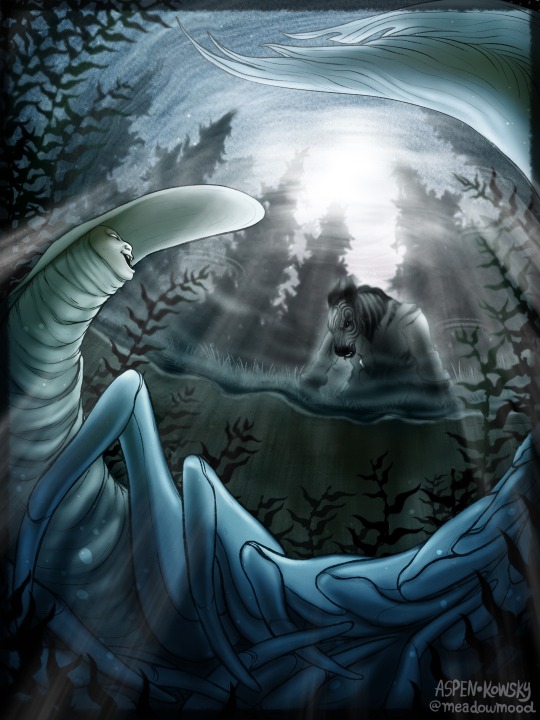
This is the last short story upload I will be doing for all of the work I did for my senior show centering around my own stories and characters. If you would like to view the entire exhibition now, click this link! It includes a number of short stories, illustrations, and character bios for your viewing pleasure!
Read the full story below the cut!
The lake lay still, its pristine blue waters sparkling brilliantly in the midday sun. Far below the surface of the lake, deep below the farthest reaches of light, sat Ankora, an enormous spirit who called the lake her home. She felt the soft swaying water weave around her body as she sat, she and the lake were one body and one mind, as it was her territory her magic was deeply imbued into its calm waters. Ankora could feel every splash, ripple, and wave that disturbed it, peering across its massive girth through her mind’s eye...
As Ankora sat she reminisced on how long it had been since she had someone to share her home with. Many creatures find their way to the lake as it calls upon all those seeking safety from harm. She took great care in providing these souls sanctuary for as long as they required, and providing comeuppance to those who would cause them harm in the first place.
She heaved an enormous sigh and lifted herself off of the lake floor, using the force of her large tail to propel herself forward. The dense kelp forest parted around her as she swam soundlessly through the stygian depths of the lake bottom. She was scanning for something interesting when a sudden wave of foreboding washed over her. As this feeling permeated her very being she felt the body of the lake shift, the strong sunlight poking in from the surface waning slightly as the landscape above the water changed.
The lake had moved once again.
She perked up at the sudden development, the lake moving meant she was needed here by someone or something. With a new air of excitement she swam up toward the light, stopping just before she broke the surface of the water. She waited, legs twitching in anticipation. In that moment she sensed someone at the edge of her lake, She felt them wash her water over their wounds and smelled their blood as it mixed with the body of the lake. As the figure cleaned themselves her vision projected into their mind and she saw who they were.
She was disgusted.
Entrenched deep within Damascus she saw anger, and an intense thirst for power over others. The blood on his hands was much more than his own and her body ached with the pain of those unfortunate enough to cross his path. He had believed he deserved everything, and would do anything to get it. Within his eyes she saw the countless faces of creatures he had scarred in his wake, and finally those who had been able to fight back. Ankora stared into the face that had given him the wounds he now washed. Siblings, united after a long battle apart, baring the last of their strength to cast out the manipulator that now stood in front of her.
She grinned, baring rows of shark- like teeth, she now knew her purpose here.
Ankora swam quietly to the shore, making no sound as she maneuvered through the calm waters. She grasped the rocky slope with her long legs and perched herself just below her prey, and readied herself to pounce.
No warning was given and no niceties were exchanged when Ankora thrust her body out of the water and devoured Damascus. It was sudden, and bloodless. Some might say Damascus has time to scream, or even comprehend his fate before it was dealt. But it would have just been their imagination.
Ankora fell to the ground and let her body slink back into the dark waters of the lake. A contented smile spreading across her face.
“He had finally gotten everything he deserved” She thought to herself as she disappeared into the shadowy waters of the lake.
Quiet overtook the water’s surface, Damascus was gone.
#last one babey!!#this time we meet ankora#also know as swamp lobster and bitch shrimp amongst my friends#she has one personality trait and it's oh you're toxic? *devours you*#digital art#writing#artists on tumblr#idk what to tag this it has a link in it its gonna die anyway ajsljkdkld
27 notes
·
View notes